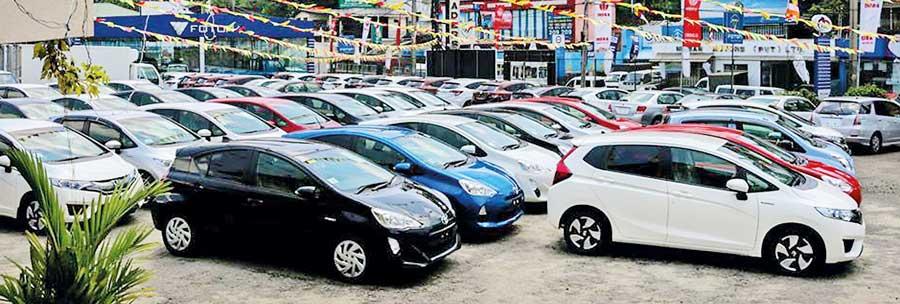28 Jan 2020 - {{hitsCtrl.values.hits}}

The government has been told to rethink the current tax duty structure on vehicle imports and Luxury Tax, as they have effectively put a lid on vehicle imports in excess of 1,600cc engine capacity.
According to the latest vehicle registrations data analysed by JB Securities, a Colombo-based equities brokerage and a research house, only one new car and four pre-owned cars have been registered with engine capacity in excess of 1,600cc in December.
“Taxes on cars are via an excise duty based on the engine capacity and a Luxury Tax of 60 percent above the value of Rs.4.0 million—an illustration of the need for a rethink of the current policy,” JB Securities Managing Director Murtaza Jafferjee stated in a note.
Last October, the then government revised the Luxury Tax formula on vehicles by resorting to calculate the tax based on the manufacturing cost or the cost, insurance and freight (CIF) value of a vehicle, instead of the previous used method based on the engine capacity.
The new tax move was expected to generate revenue of Rs.48 billion. The revised tax is applied on vehicles registered on or after November 1, 2019.
The Luxury Tax on vehicles registered before November 1, 2019, was based on their engine capacity.
Accordingly, pre-November 1, the Luxury Tax was applicable on only three categories of vehicles—petrol vehicles with cylinder capacity more than 1,800cc, diesel vehicles with cylinder capacity of more than 2300cc and electric vehicles with more than 200kw power.
But after November 1, the Luxury Tax became applicable on all petrol and diesel vehicles with a CIF value exceeding Rs.3.5 million. A tax rate of 120 percent is applicable on the amount exceeding the luxury free threshold i.e. Rs.3.5 million.
The Luxury Tax applicable on hybrid petrol vehicles exceeding the CIF value of Rs.4 million is 80 percent and on hybrid diesel vehicles exceeding the CIF value of Rs.4 million is 90 percent.
On electric vehicles with a CIF value exceeding Rs.6 million, a 60 percent Luxury Tax is charged.
At the time the amendment was brought in, the vehicle importers opposed to the move, saying it would hit their sales dearly.
In fact, according to the data compiled by JB Securities, the total motorcar registrations in December was recorded at 2,057 units, largely unchanged from 2,030 units in November but down from 2,669 units a year ago.
At its peak, Sri Lanka imported over 10,000 cars in November 2015, which drastically came down to 3,574 units a year later, amid brakes applied by the authorities on vehicle imports, due to the overheating of the economy. Meanwhile, there were 882 units of three-wheelers registered in December 2019, from 995 units in November and 1,332 units a year ago.
Two-wheeler registrations recorded 19,432 units, up from 18,450 units in November but significantly down from 22,942 units a year ago.
Sri Lanka awaits a new transport policy from the administration of President Gotabaya Rajapaksa.
16 Nov 2024 6 minute ago
16 Nov 2024 1 hours ago
16 Nov 2024 1 hours ago
16 Nov 2024 2 hours ago
16 Nov 2024 2 hours ago